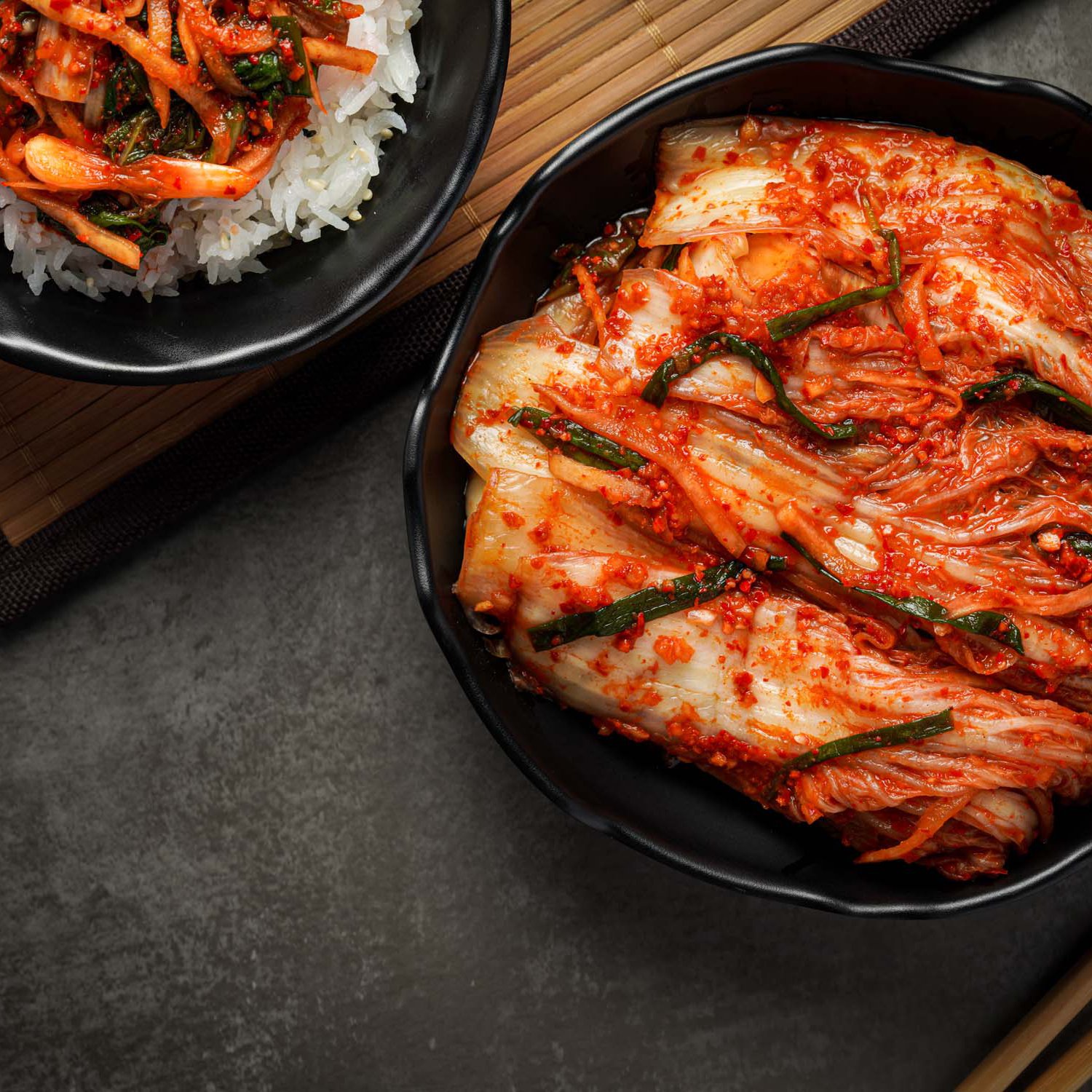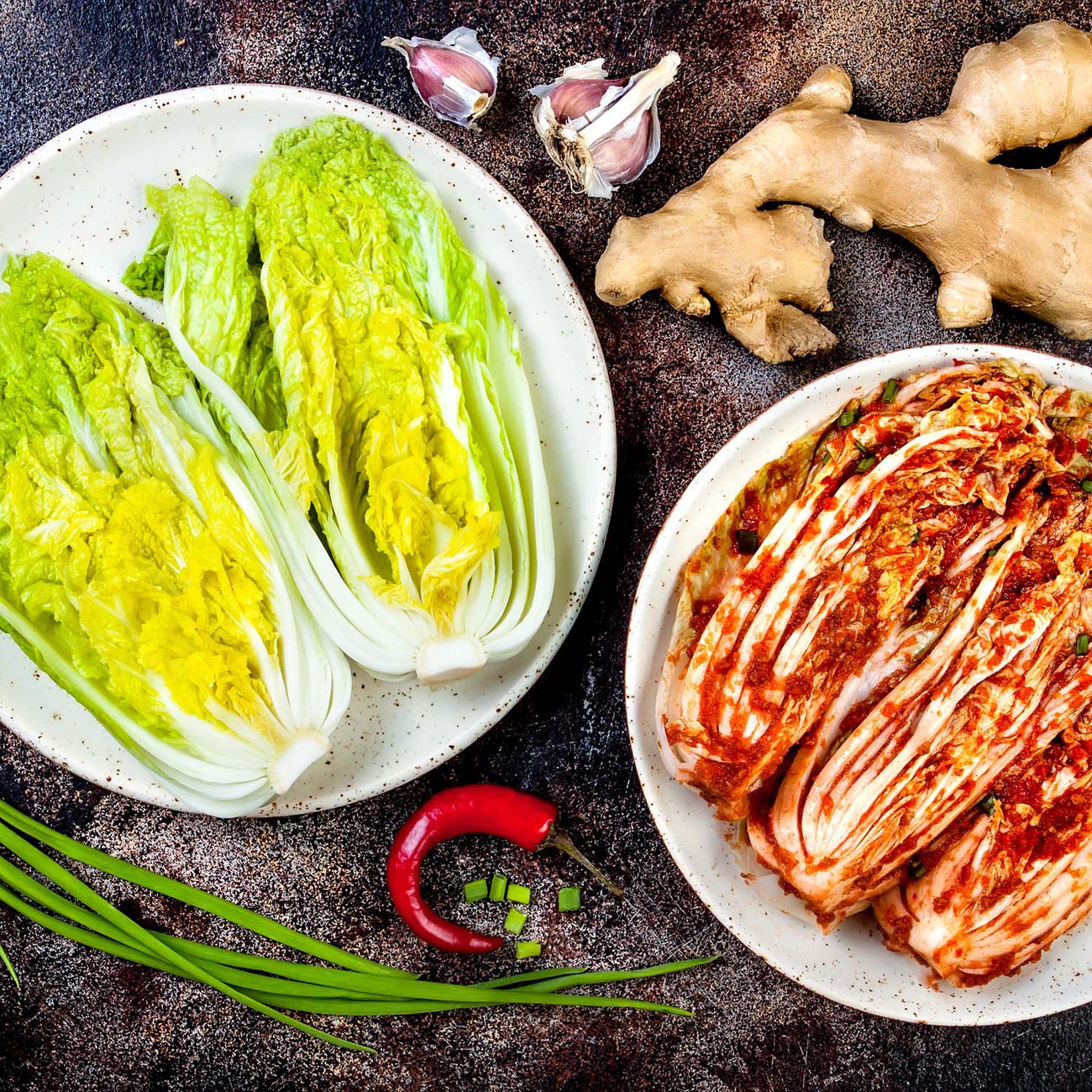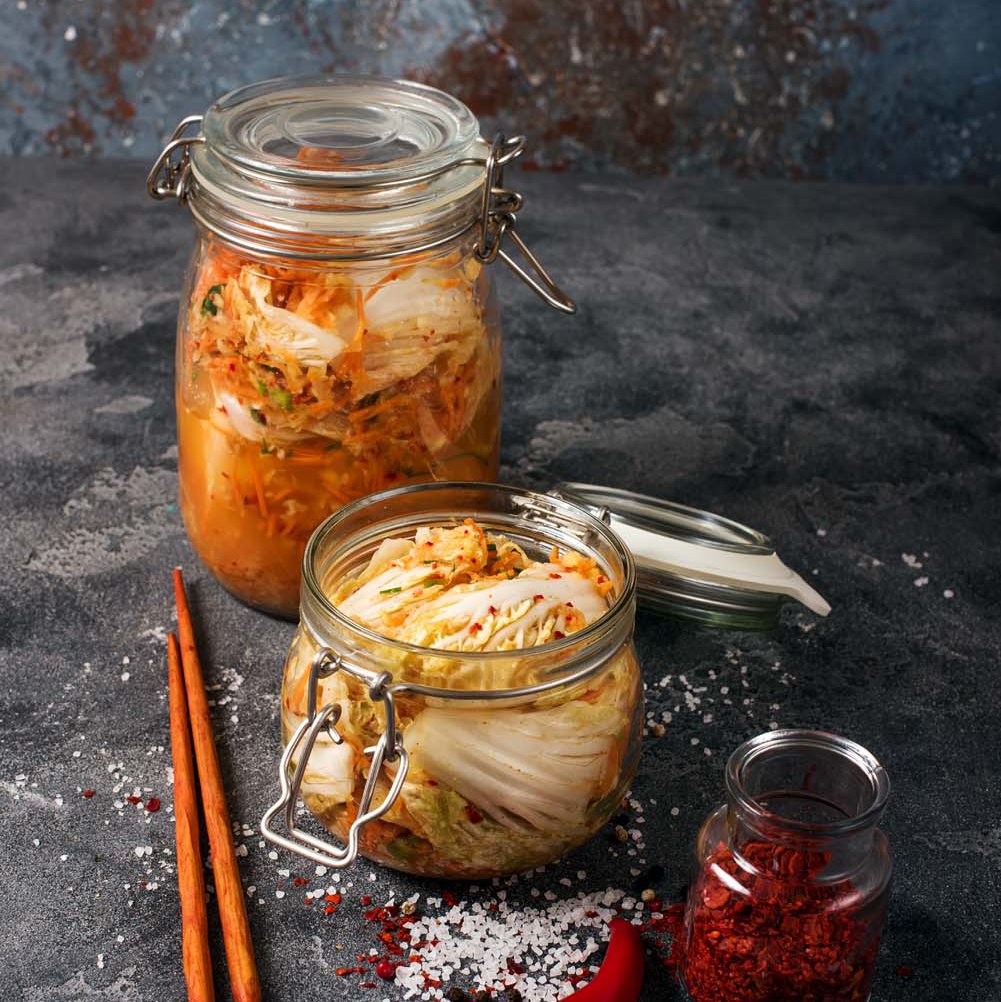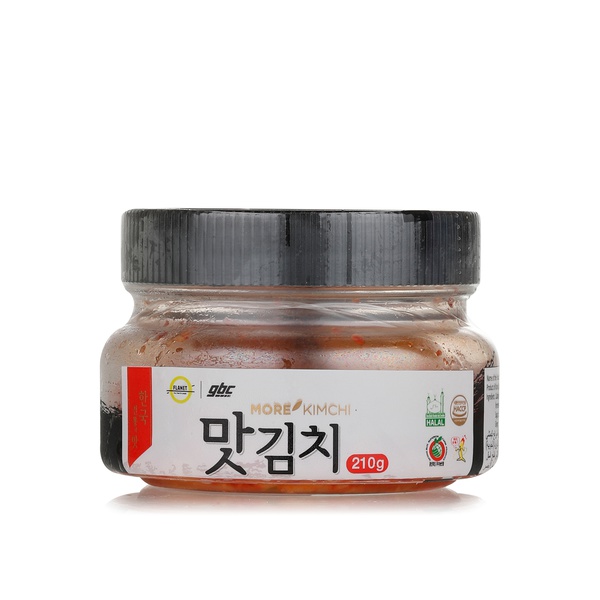5 health benefits of kimchi

With its rich, red colouring, crunchy texture and tangy taste, kimchi is an exotic side dish that's enjoyed daily across the globe.
Well-loved for its spicy kick (garlic, ginger and chilli powder are often used in the recipe) it has become an exotic treat for the world’s foodies, however, the fermented vegetable is much more than just a salad topping, or burger relish – it’s actually a nutrient-dense food, packed with health benefits.
Probiotic
Fermented cabbage is full of thriving probiotics. These helpful live bacteria are produced during the fermenting process and are essential to gut health, aiding in the digestive process while maintaining healthy gut flora. Probiotic foods are most beneficial when eaten regularly (six tablespoons per day are recommended) but don’t cook your cabbage, as heat can destroy the advantageous bacteria.
Loaded with vitamins
Not only does Kimchi's fermentation process add extra taste, but it also boosts its nutrient count beyond that of fresh cabbage. One cup contains decent amounts of vitamin C, vitamin K1, vitamin B6, iron, manganese, folate, copper and potassium along with 6 grams of carbs, 4 grams of fibre and a gram of protein. Fermented cabbage does have a higher sodium count though, with a single cup providing 41% of your Daily Recommended Amount.


Low in calories
If you’re watching your waistline, then kimchi should definitely be on your shopping list. Low in carbs, high in fibre and fat-free, fermented cabbage may help you lose weight and keep it off. Depending on the ingredients used, kimchi contains a mere 27 calories per cup. To put that into perspective, a cup of blueberries weighs in at a hefty 85 calories.
Long shelf life
Workers first fermented cabbage while building the Great Wall of China, so keeping it in the fridge in an airtight container for up to six months is not a problem. Kimchi can even be kept at room temperature for a week and as it’s mostly unpasteurised, the beneficial bacteria continue to ferment. The ongoing fermentation process also subtly changes the taste over time, with the kimchi gaining a sharp, tart taste as it matures. However, if you’re not sure about your kimchi’s shelf life, just follow the best before dates on the jar.
Immune system boost
As well as probiotics, kimchi is packed with vitamins, minerals, and phytochemicals. These immune system-boosting nutrients include a large dose of the antioxidant beta-carotene, and choline, a natural compound vital for maintaining cellular, muscle, and nervous system health.
